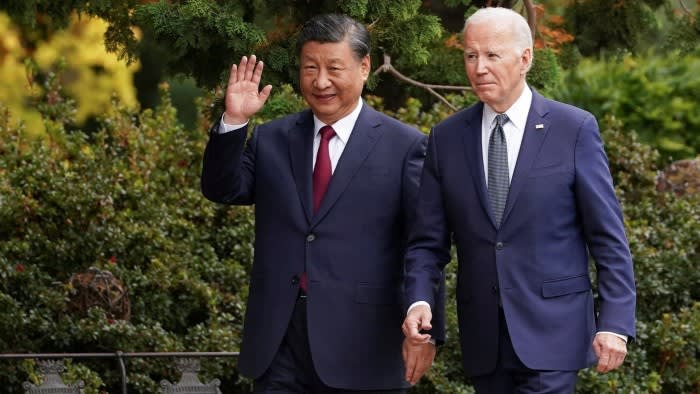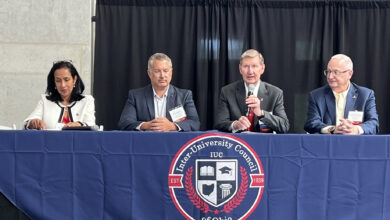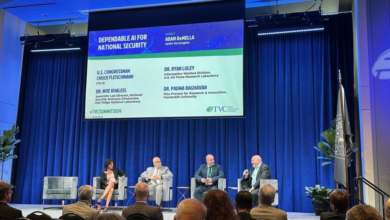US and China to hold first talks to reduce risk of AI ‘miscalculation’

Stay informed with free updates
Simply sign up to the US-China relations myFT Digest — delivered directly to your inbox.
Chinese and US officials will on Tuesday hold the first meeting in a dialogue on artificial intelligence that Presidents Joe Biden and Xi Jinping agreed at a summit in San Francisco last year.
US officials said the two sides would meet in Geneva following earlier discussions on the issue, including between US national security adviser Jake Sullivan and Chinese foreign minister Wang Yi.
“Our approach on China remains focused on ‘invest, align and compete’ but we also believe intense competition requires intense diplomacy to reduce the risk of miscalculation and unintended conflict. This is particularly true in the case of AI,” said one US official.
A second US official said the Biden administration recognised the “transformative potential” of AI but was cognisant of the “necessity of striking a balance between risk management and seizing the opportunities provided by advanced AI”.
The US delegation will be led by Tarun Chhabra, the National Security Council senior director for technology and national security, and Seth Center, the state department’s special enjoy for critical and emerging technologies.
The second US official said the meeting would focus on risk and safety with an emphasis on advanced AI systems but was not designed to deliver outcomes.
The official said the US would outline its stance on tackling AI risks, explain its approach on norms and principles of AI safety, in addition to holding discussions on the role of international governance. But he said the US would also voice concern about Chinese AI activity that threatened American national security.
He said China had made AI development a “major” priority and was rapidly deploying capabilities in civilian and military areas that in many cases “we believe undermines both US and allied national security”.
The US official said the talks were not aimed at promoting technical collaboration or co-operation on frontier research between the two countries.
“In addition to having national security risks, we also believe there are global risks posed by rapid advances in AI that is worth the US and China exchanging views on,” he added.
The AI dialogue is one of several outcomes from the summit in San Francisco in November. In line with the agreements reached, the US and Chinese militaries have reopened communication channels that China had stopped after then-US House Speaker Nancy Pelosi visited Taiwan in August 2022.
The US and China have also created a working group to address the shipment of ingredients for fentanyl from China to Mexico, where drug cartels use the chemicals to produce the deadly synthetic opioid.
While the agreements reached in San Francisco have helped stabilise relations between the powers, tensions remain high over a range of issues, including aggressive Chinese military activity around Taiwan and near the Philippines and US efforts to stop Chinese groups from getting advanced US technology, including chips for AI and the machine tools needed to build the powerful chips for AI applications.
The US on Tuesday is also expected to announce that it will quadruple the tariff on imports of electric vehicles from China. Last week, the US commerce department added several dozen Chinese groups to the “entity list”, which makes it difficult for American companies to export technology to the targeted entities.



